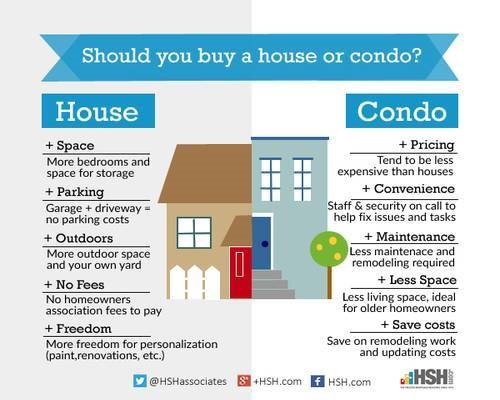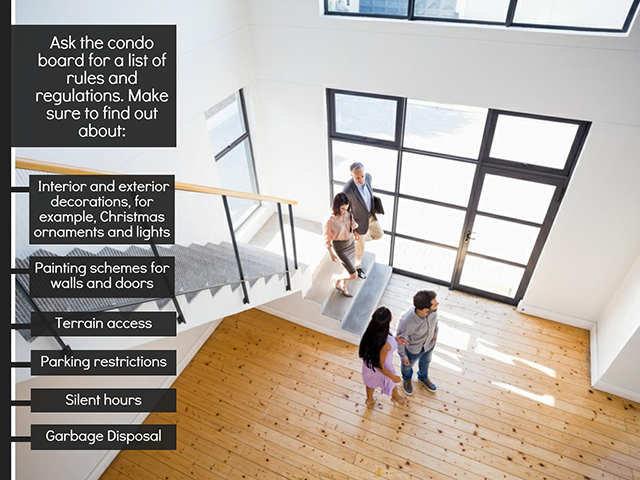A condominium is a residence that is owned by a private entity within a larger building.
In particular, a condominium has shared spaces, like a courtyard, garage, or gym.
Condo owners don’t need to maintain the exterior of the building or the shared spaces.
These are maintained by an organizing committee, often the condo board.
The board is responsible for everything outside of the unit, as well as regulating the quality of life in the building.
Should You Buy a House or a Condo?
Purchasing real estate is a big decision.
Buyers need to decide the location that they would like to live in, as well as determine the price they can afford.
When you own a house, the proprietor is responsible for maintaining the interior and exterior of the building and cleaning the yard.
Any repairs or renovations that need to be done are the responsibility of the owner.
The price of the house is directly dependent on the amenities that the home has.
Homes with a pool, a garage, or a large yard will be more expensive.
A private, detached home provides the owner with more independence, space, and freedom.
The price of a condo can be less than that of a home with the same amenities.
The buyer does not need to worry about the upkeep of the property as the condo administration takes care of that.
Condo owners are still responsible for covering the cost of the maintenance either through monthly fees or one-time assessments for larger repairs.
By nature, many families live in condominium buildings and to keep the ambiance of the building, the administration sets rules and regulations.
In exchange for complying with the rules (and paying the condo fees), the board takes care of hiring landscapers, roofers, cleaners, and anyone else that is needed to keep the building in shape.
Because the owner does not do any physical labor for the upkeep of the property, condos are a good option for elderly people.

The Differences between Condos and Apartments
Condos are better quality buildings than apartments.
Often, the inhabitants are the owner of the unit, rather than a tenant.
Owners are invested in the quality of life of the building, whereas tenants are more likely to be carefree.
Additionally, owning a condo is an investment, just like owning a house or other property.
The quality of an apartment building can vary greatly from one building to the next, and units within the same building may be in very different conditions.
Apartment buildings often don’t have a parking lot or garage associated with it, and the yard may be smaller or non-existent.
Things to Ask the Condo Board
The condo board sets the rules, regulation, fees, maintenance schedule, and more about the building.
The board’s finances should also be available to browse.
Checking if the board can cover their expenses is a good indication of the responsibility of the other owners in the building.
The financial situation of the building will also affect the mortgage rate available from the bank.
If the board does not want to provide a copy of their books, the seller should have a copy to share.
The condo board should also have liability insurance in the case of legal disputes with owners or neighbors.
In addition to knowing the above information, inquire about the history of the fee.
Has it increased recently, or will it increase in the near future?
If so, by how much?
Ask if the board predicts or has already begun to plan a major repair or renovation.
Those can result in a massive bill for owners, the funds to pay for which may not be readily available with new buyers.
Most condominiums have a live-in caretaker whom owners can refer to for maintenance questions.
Ask the board who the caretaker is and how long they have been with the building.
The longer the employee has been with the condo, the better.
Also, knock on doors and talk with other owners.
They may tell you pertinent information that the board has not.
This will also give you an idea of the owner to tenant ratio of the building.
Owners are generally more responsible and respectful than tenants.



